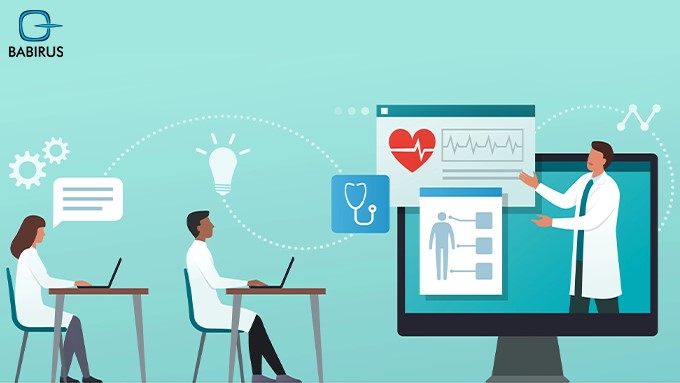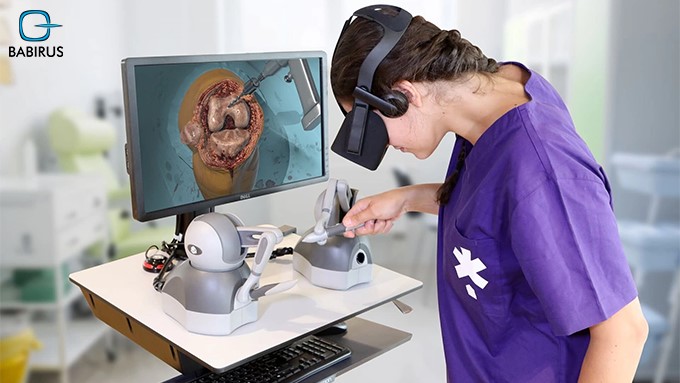Training and Education for Medical Equipment in UAE

What powers the UAE’s world-class healthcare system? Beyond advanced hospitals and cutting-edge devices, it’s the skilled professionals who know how to operate and optimise this technology. As the country continues to adopt innovative medical equipment, the need for specialised training has become more significant than ever. This is where medical equipment training in UAE takes centre stage, bridging the gap between technology and effective patient care.
Continue reading this blog as we explore the significance of medical equipment training in UAE, covering the types of programs available, the organisations offering them, the challenges faced, and the numerous benefits of investing in these essential initiatives.
Why Training and Education for Medical Equipment Matters
Modern medical devices are complex tools designed to improve healthcare outcomes, but their advanced features require more than just basic operational knowledge. Healthcare professionals must be equipped to handle these devices accurately and confidently, from using imaging systems to managing ventilators and robotic surgical equipment.
Medical equipment training in UAE ensures that healthcare workers can use these tools to their full potential. By enhancing skills and reducing risks associated with improper use, such trainings contribute to better patient care and operational success.
Key Types of Training for Medical Equipment in the UAE
Healthcare providers in the UAE rely on various tailored training programs to meet the diverse needs of their roles. These programs ensure that professionals are equipped with the necessary skills to handle complex medical devices, maintain their functionality, and adhere to regulatory standards.
1. Operational Training
Operational training equips healthcare workers with the knowledge and practical skills required to manage the day-to-day use of medical equipment. These programs focus on:
- Device Setup: Training healthcare workers to assemble and prepare medical devices, ensuring they are fully functional and safe for patient use. This step is essential for creating a seamless workflow within healthcare facilities.
- Troubleshooting Techniques: Empowering professionals to identify and address common operational issues efficiently, reducing delays and improving overall device performance.
- Optimising Usage: Teaching participants how to adjust device settings and functionalities for different procedures, ensuring accurate results and consistent outcomes.
This form of medical equipment training in UAE is necessary for helping professionals use devices effectively, improving confidence in their daily operations and ensuring reliable patient care.
2. Technical Maintenance Training
Maintenance training focuses on ensuring the longevity and consistent performance of medical devices. Technicians who participate in these programs are prepared to:
- Detect and Resolve Issues: Learn to recognise early warning signs of wear and tear or calibration errors, addressing them before they affect operations.
- Conduct Preventative Maintenance: Perform routine inspections and servicing to minimise equipment breakdowns and ensure uninterrupted functionality.
- Carry Out Basic Repairs: Develop skills to manage minor technical faults in-house, reducing dependence on external technicians and limiting device downtime.
Such programs not only improve the reliability of medical equipment but also help healthcare providers manage operational costs. Facilities that prioritise healthcare training in UAE for maintenance personnel can optimise their resources while maintaining high standards of care.
3. Compliance and Safety Training
Safety is an essential component of medical device usage, and compliance programs play a significant role in ensuring that healthcare facilities adhere to national regulations. These training programs often cover:
- Regulatory Guidelines: Educating healthcare professionals about the legal requirements governing medical equipment usage in the UAE, ensuring operations are in line with national standards.
- Risk Management: Teaching strategies to prevent accidents or device malfunctions that could endanger patients or staff.
- Emergency Preparedness: Preparing healthcare workers to handle unexpected equipment failures or issues during important procedures.
Incorporating medical equipment education focused on safety and compliance helps facilities maintain credibility, avoid disruptions, and provide dependable services.
4. Specialised Device Training
Certain advanced devices, such as robotic surgical systems or high-tech diagnostic tools, require tailored programs to meet the specific needs of medical professionals. Training in UAE medical equipment skills includes:
- Mastering Advanced Technologies: Providing in-depth instruction on complex tools for tasks such as minimally invasive surgeries or precise diagnostics, ensuring devices are used to their full potential.
- Customised Role-Based Learning: Offering specialised sessions for different roles, including surgeons, radiologists, and technicians, to ensure they are proficient in the devices relevant to their expertise.
- Simulation-Based Practice: Using simulated environments to allow professionals to practice their skills safely before applying them in real-world scenarios.
This training is key to using advanced medical equipment effectively, contributing to improved patient outcomes and ensuring operational efficiency. By participating in medical equipment training in UAE, specialists can confidently handle advanced technology, supporting excellence in healthcare delivery.
Key Institutions and Programs for Medical Equipment Training in UAE
The UAE offers a variety of reputable options for medical education for healthcare professionals, catering to the growing need for skilled personnel in the medical equipment sector. These institutions and programs provide comprehensive training, helping professionals acquire the necessary skills to operate and maintain advanced medical devices.
Specialised Training Providers
Private organisations across the UAE offer hands-on medical equipment education, focusing on both fundamental and advanced aspects of medical devices. These specialised training providers design their programs to meet the specific needs of healthcare facilities and professionals. Key features include:
- Customized Curriculum: Courses are tailored to cover a wide range of equipment, from basic diagnostic tools to complex surgical systems, ensuring that participants gain practical experience relevant to their roles.
- Experienced Instructors: Training is delivered by professionals with extensive experience in the healthcare industry, providing valuable insights and real-world knowledge to learners.
- State-of-the-Art Facilities: Many providers have modern training centers equipped with the latest medical devices, allowing participants to practice and refine their UAE medical equipment skills in a controlled environment.
Device Manufacturer Programs
Global medical device manufacturers often offer in-depth training programs for the equipment they produce. These companies understand the importance of proper usage and provide education to healthcare professionals to ensure their products are used effectively and safely. In addition to manufacturers, authorised distributors, such as Babirus Medical Equipment in the UAE, play a key role in organising training sessions within their regions. These distributors ensure that healthcare facilities have access to training programs tailored to their specific needs. Highlights of these programs include:
- Product-Specific Training: Manufacturers, along with their distributors, deliver detailed instruction on the operation, maintenance, and troubleshooting of devices, enabling users to maximise the benefits of the technology.
- Certified Courses: Participants often receive certification upon completion, validating their expertise in using specific equipment.
- Ongoing Support: Both manufacturers and distributors may provide continuous support and updates, keeping healthcare workers informed about new features or upgrades to the devices.
By collaborating with local distributors, global manufacturers ensure that healthcare professionals in the UAE receive comprehensive medical equipment education and support, helping them develop the confidence needed to use advanced medical equipment effectively.
Government Partnerships
The UAE government actively collaborates with healthcare institutions to promote healthcare training in UAE. These partnerships aim to enhance the skills of the healthcare workforce, particularly in the use of medical equipment. Key initiatives include:
- National Training Programs: Government agencies organise training sessions and workshops that focus on standardising practices across the country, ensuring consistency in the quality of care.
- Regulatory Compliance Education: Programs emphasize the importance of adhering to national regulations and guidelines, helping professionals stay up-to-date with legal requirements.
- Scholarships and Funding: Financial support may be provided to encourage participation in training programs, especially for professionals in underserved areas.
Digital Learning Platforms
Since COVID-19 reshaped the medical equipment market in the UAE, technology has played a significant role in improving patient outcomes and care. Alongside this, digital platforms have gained prominence, offering online and blended learning opportunities for healthcare professionals. These platforms not only enhance the skills of medical workers but also align with broader goals of improving efficiency and reducing costs. Features of these platforms include:
- Accessible Education: Professionals can access courses remotely, making it easier for those in different regions or with tight schedules to participate in medical equipment training in UAE.
- Self-Paced Learning: Online modules enable learners to progress at their own pace, accommodating varying learning styles and time constraints.
- Interactive Content: Digital courses often incorporate videos, quizzes, and virtual simulations, enhancing engagement and retention of information.
Challenges in Medical Equipment Training and Education in UAE
Despite its importance, there are challenges in delivering effective medical equipment training in UAE:
- High Costs
Specialised training programs can be expensive, especially for smaller healthcare providers. Balancing affordability with the need for high-quality instruction remains a key concern.
- Keeping Up with Rapid Changes
As medical technology evolves quickly, training programs must frequently be updated to reflect advancements. Keeping healthcare workers up to date requires consistent investments in education.
- Limited Access for Remote Areas
Healthcare professionals in rural or less-developed regions may struggle to access advanced training programs. Bridging this gap is essential to maintain uniform standards of care across the UAE.
Benefits of Investing in Medical Equipment Training
Investing in medical equipment training in UAE offers numerous advantages for healthcare facilities and professionals:
- Better Patient Care
Properly trained professionals can use medical devices more effectively, leading to safer procedures and improved outcomes for patients.
- Increased Professional Confidence
Programs focusing on healthcare training in UAE enhance confidence among staff, enabling them to work efficiently and with greater assurance.
- Cost Savings
Training helps reduce operational errors, avoid equipment misuse, and minimise maintenance costs, creating long-term financial benefits for healthcare providers.
- Regulatory Alignment
Comprehensive programs ensure that facilities comply with UAE regulations, helping maintain credibility and trust in the healthcare sector.
The Way Forward,
The UAE’s commitment to advancing healthcare places a spotlight on the importance of medical equipment training in UAE. These programs empower healthcare professionals with the skills needed to operate modern devices with precision, ensuring high-quality patient care and effective operations.
Expanding access to comprehensive training programs not only strengthens the capabilities of the healthcare workforce but also supports the nation’s goal of setting new benchmarks in medical excellence. By investing in medical education for healthcare professionals, the UAE is paving the way for a more skilled, confident, and prepared healthcare sector that can meet both current and future demands.

